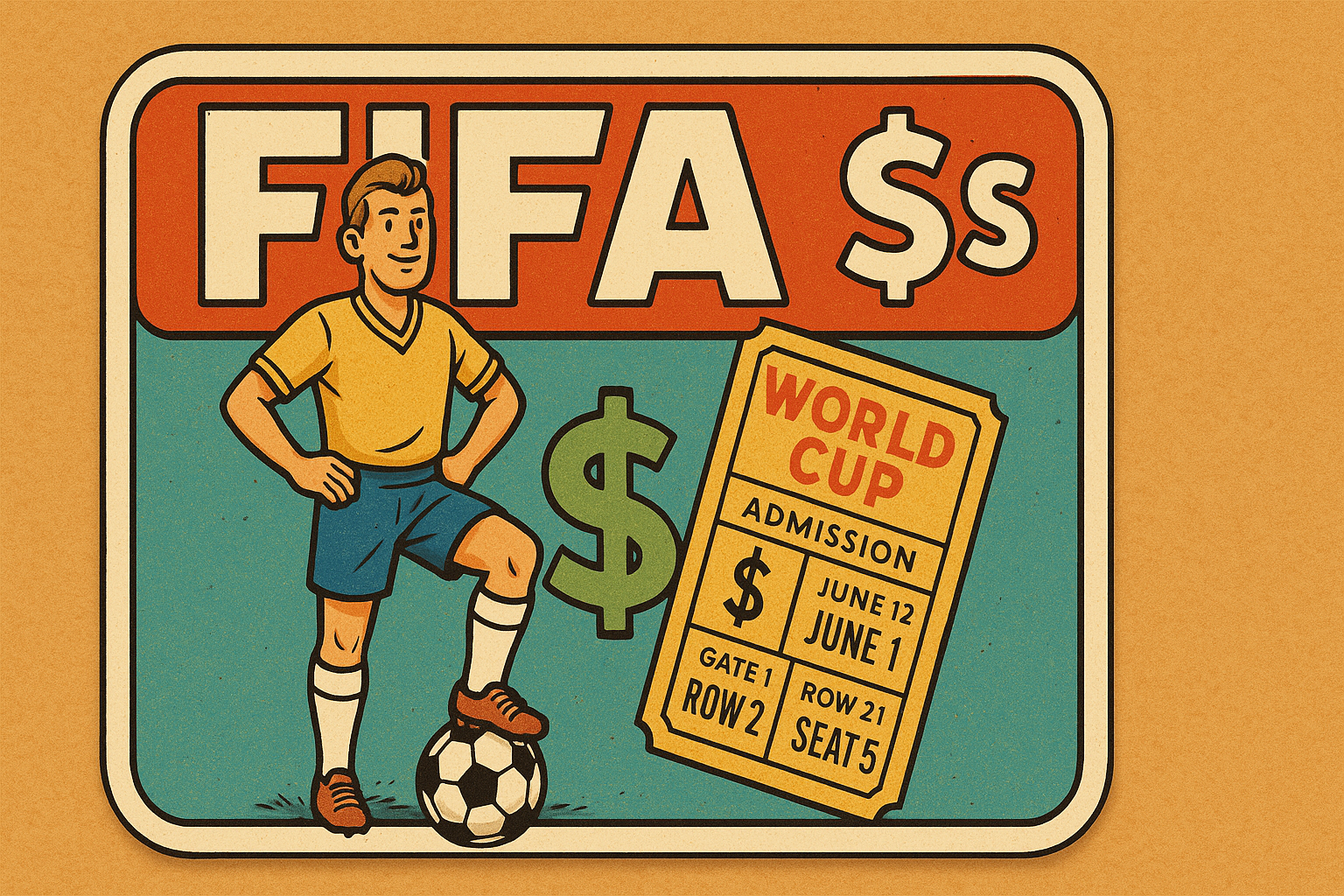FIFA Faces Pressure Over 2026 World Cup Ticket Pricing [7 Key Updates]
Introduction
As the 2026 FIFA World Cup—co-hosted by the United States, Canada, and Mexico—draws closer, controversy is heating up around ticket prices. New York City mayoral frontrunner Zohran Mamdani has openly challenged FIFA’s decision to adopt dynamic pricing, sparking a larger debate about accessibility, fairness, and profit motives in global sporting events. His petition, “Game Over Greed,” has already gained thousands of signatures, highlighting growing fan frustration.
This article breaks down FIFA’s official response, Mamdani’s demands, and what it could mean for soccer fans worldwide.
What Sparked the Debate?
The conflict began when FIFA confirmed dynamic pricing for the 2026 World Cup. This means ticket costs will fluctuate based on demand, with prices ranging from $60 for group stage games to as high as $6,730 for the final at MetLife Stadium.
FIFA responds to Zohran Mamdani’s World Cup ticket price demands https://t.co/YB99JVkdar pic.twitter.com/tvhKwr9azS
— New York Post (@nypost) September 10, 2025
Mamdani quickly opposed the model, warning that it could lead to exorbitant resale prices on FIFA’s own official platform. His petition calls for:
- An end to dynamic pricing.
- A cap on resale ticket costs.
- A 15% ticket reserve for local residents at discounted rates.
FIFA’s Official Response
FIFA defended its ticketing strategy in a statement to the New York Post:
- Dynamic pricing is standard: FIFA called it a “developing market practice” for major global sporting events.
- Affordable entry points: Group stage tickets start at $60, which FIFA considers competitive.
- Fair access promise: The organization emphasized it would reserve tickets for specific fan groups at fixed prices.
- Resale safeguards: The official resale platform is designed to be “safe and secure” under U.S. law.
FIFA also reminded the public that as a non-profit body, over 90% of World Cup revenues are reinvested into football development across its 211 member associations.
Zohran Mamdani’s Stand
During a press conference in The Bronx, Mamdani criticized FIFA for prioritizing profit over people, stating:
“The World Cup should be an opportunity to extend this game to the people who make it so special—not an opportunity for exploitation.”
As a rising political figure and candidate for NYC mayor, Mamdani has leveraged the issue to rally fans, aligning his campaign with affordability and fairness in public access to sports.
The Bigger Picture: Billions at Stake
The 2026 tournament is expected to generate $3 billion in ticket sales alone, according to The Athletic. With over 80 matches across three nations, the World Cup will be the largest in history, making ticket pricing a critical battleground between fans, FIFA, and political voices.
FAQs
Q1: What is dynamic pricing in sports tickets?
Dynamic pricing means ticket costs rise or fall based on demand, similar to airline or concert tickets.
Q2: Why is Zohran Mamdani opposing FIFA’s pricing model?
He believes it will make tickets unaffordable for ordinary fans and benefit profiteering on resale markets.
Q3: How much will World Cup tickets cost?
Prices start at $60 for group stage matches and can exceed $6,700 for the final.
Q4: Will there be discounted tickets?
FIFA says certain categories of fans will have access to fixed-price tickets, but details remain vague.
Q5: How will FIFA use the revenue?
FIFA claims over 90% of revenue is reinvested globally to support football at all levels.
Conclusion
The clash between FIFA’s commercial strategy and Zohran Mamdani’s affordability campaign reflects a deeper debate: Should mega-sporting events prioritize maximizing revenue or ensuring universal fan access?
While FIFA emphasizes reinvestment and global development, the optics of $6,000+ tickets raise legitimate concerns about elitism in football. Mamdani’s campaign resonates because it taps into a widespread belief that the World Cup should belong to the people, not just those who can afford premium prices.
Opinion
This debate exposes a timeless dilemma in global sports: where to draw the line between passion and profit. FIFA’s defense—that ticket sales fuel grassroots football worldwide—is valid, yet so is Mamdani’s argument that the World Cup must remain accessible to ordinary fans, especially locals hosting the matches.
Ultimately, the controversy invites a bigger question: Is the future of sports about community celebration or corporate monetization? As the 2026 World Cup approaches, the answer may shape not only ticket prices but also the identity of football itself in a commercialized era.


0 comments